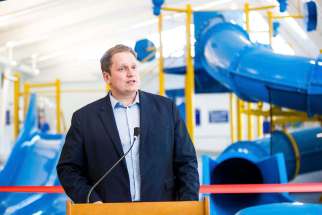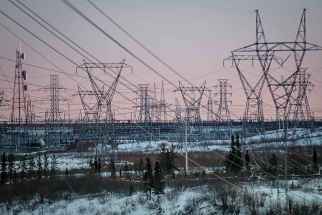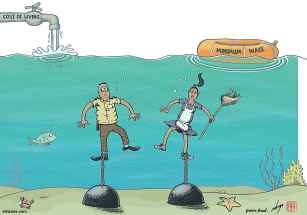Conscientious (tax) objectors Manitoba couple diverts estimated military portion of federal taxes to peace fund
Read this article for free:
or
Already have an account? Log in here »
To continue reading, please subscribe:
Monthly Digital Subscription
$0 for the first 4 weeks*
- Enjoy unlimited reading on winnipegfreepress.com
- Read the E-Edition, our digital replica newspaper
- Access News Break, our award-winning app
- Play interactive puzzles
*No charge for 4 weeks then price increases to the regular rate of $19.00 plus GST every four weeks. Offer available to new and qualified returning subscribers only. Cancel any time.
Monthly Digital Subscription
$4.75/week*
- Enjoy unlimited reading on winnipegfreepress.com
- Read the E-Edition, our digital replica newspaper
- Access News Break, our award-winning app
- Play interactive puzzles
*Billed as $19 plus GST every four weeks. Cancel any time.
To continue reading, please subscribe:
Add Free Press access to your Brandon Sun subscription for only an additional
$1 for the first 4 weeks*
*Your next subscription payment will increase by $1.00 and you will be charged $16.99 plus GST for four weeks. After four weeks, your payment will increase to $23.99 plus GST every four weeks.
Read unlimited articles for free today:
or
Already have an account? Log in here »
Hey there, time traveller!
This article was published 09/04/2019 (2436 days ago), so information in it may no longer be current.
Like many others in Canada this week, Ernie and Charlotte Wiens are doing their taxes.
Unlike other Canadians, the La Salle farming couple won’t send the federal government everything it says they owe — the part that violates their conscience.
For Ernie, 72, and Charlotte, 69, that’s the estimated 10 per cent of Canada’s budget spent on the military.
Instead of sending that money to the government, they will divert it to Conscience Canada’s Peace Tax Trust Fund.
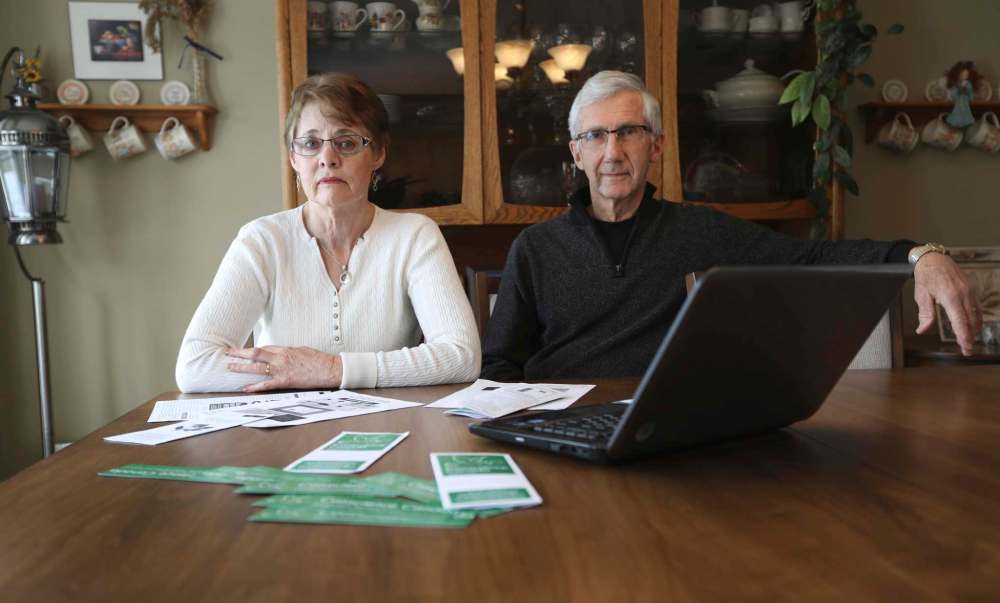
“We do it because of our faith, because of our understanding of the message of Christ,” said Ernie. “Christ taught us to be non-violent, to love our enemies, to pray for our persecutors, to break down barriers and animosities. That’s our starting point.”
Along with their Christian faith, they draw inspiration from their service as volunteers with Mennonite Central Committee in Botswana from 1972 to 1975, and from when Ernie worked with MCC in 1983-86, providing aid to people caught in conflict.
“I think of the horrors of war, the suffering of civilians,” said Charlotte. “My heart breaks for all the children in the world caught in war. It doesn’t make sense the world spends billions on arms. That money could be used for much better purposes.”
“How can we live out our convictions about peacebuilding in our time? How can we pray for peace, but pay for war? It’s contradictory. It doesn’t fit, doesn’t make sense.”– Ernie Wiens
The example of family members who were conscientious objectors during the Second World War is also on their minds. In Charlotte’s case, her father refused to fight during the war, doing alternative service in Alberta and B.C. Two of Ernie’s uncles were also conscientious objectors.
Back then, the government needed bodies to fight, said Ernie.
War tax resistance
The idea for war tax resistance in Canada dates to 1981, when Winnipeg MP Stanley Knowles and five other MPs published a letter that said, in part: “In times of military conscription, exemption from service in the military can be claimed on grounds of conscience, and alternate service is approved. It should be equally possible to claim exemption from paying for war preparation, and an alternative provided.”
Conscience Canada was incorporated in 1983 to advocate for ways for Canadians to legally divert taxes to peaceful purposes. The first private member’s motion calling for a National Peace Tax Fund was introduced into the House of Commons that same year; 12 other motions and bills have followed.
The most recent was Bill C-363, “an act respecting conscientious objection to the use of taxes for military purposes.” It was proposed in 2013 by then-NDP MP Alex Atamanenko.
Conscience Canada estimates $32 billion, or 9.7 per cent, of Canada’s budget was spent on the military in 2018.
“Today, it just wants our money. How can we live out our convictions about peacebuilding in our time? How can we pray for peace, but pay for war? It’s contradictory. It doesn’t fit, doesn’t make sense.”
The couple, who attend the La Salle Community Fellowship, a Mennonite Brethren congregation, have been diverting the military portion of their taxes for 10 years.
They hope one day the Canadian government will make it legal for people to divert money to peaceful purposes.
If that happens, the Wiens will happily give the money they have diverted into the Peace Tax Trust Fund back to the government.
“We will immediately hand the money over,” Ernie said.
The Canada Revenue Agency (CRA) isn’t willing to wait that long. Starting last year, it began deducting about $500 a month from Ernie’s government pension. About two-thirds of the amount has been recovered so far.
For Ernie and Charlotte, this is a change from the past; previously, the couple only received letters or phone calls from the CRA reminding them they owed money.
The government’s recent action won’t change their minds, though.
“We are not convinced to stop doing it,” Ernie said.
They are also quick to point out there is nothing secretive or furtive about what they do.
“Every year, when we file our taxes, we send a letter to the CRA, the prime minister, the opposition leader, our MP and the minister of finance, telling them what we did,” said Charlotte.
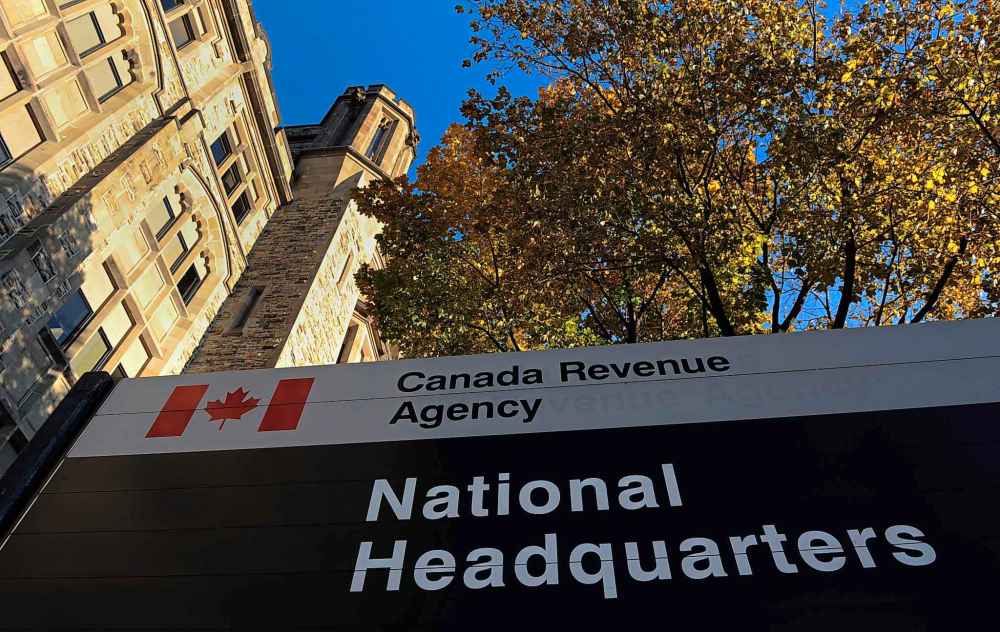
Over the years, they have had many conversations with politicians and the CRA.
“They tell us they can’t give into everyone’s wishes, that the government can’t let Canadians dictate how it spends money,” Ernie said, adding he tells them he isn’t against support for veterans or for how the military helps people caught in disasters in Canada.
“But we tell them conscientious objection is a right in Canada, something that has been practised in this country for over 200 years. It’s about freedom of conscience and religion, something enshrined in the charter.”
“Conscientious objection is a right in Canada, something that has been practised in this country for over 200 years. It’s about freedom of conscience and religion, something enshrined in the charter.”– Ernie Wiens
In a statement, CRA spokesperson Etienne Biram said participating in a tax protester scheme can have serious consequences, including criminal prosecution, jail time and fines.
Once a tax protester is identified, the CRA will reassess income tax, calculate interest and impose penalties, Biram said.
Doug Hewitt-White, president of the board of Conscience Canada, said people like Ernie and Charlotte “are the core of what we are all about.”
They epitomize the spirit of conscientious objectors of the past, he said, noting about 150 Canadians divert their taxes to the Peace Tax Trust Fund each year.
“There is a long tradition of allowing people to follow their conscience in Canada in times of war,” he said. “If people can refuse to serve in time of war, why can’t they be allowed not to pay for war?”
faith@freepress.mb.ca
The Free Press is committed to covering faith in Manitoba. If you appreciate that coverage, help us do more! Your contribution of $10, $25 or more will allow us to deepen our reporting about faith in the province. Thanks! BECOME A FAITH JOURNALISM SUPPORTER

John Longhurst has been writing for Winnipeg's faith pages since 2003. He also writes for Religion News Service in the U.S., and blogs about the media, marketing and communications at Making the News.
Our newsroom depends on a growing audience of readers to power our journalism. If you are not a paid reader, please consider becoming a subscriber.
Our newsroom depends on its audience of readers to power our journalism. Thank you for your support.
The Free Press acknowledges the financial support it receives from members of the city’s faith community, which makes our coverage of religion possible.

